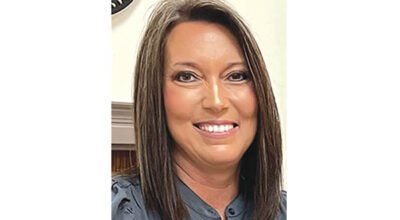Virtual ‘doctor’ to care for local students
Published 9:42 am Tuesday, November 25, 2014
Virtual medicine is coming to the Elizabethton City school system.
Treatment for students and staff of the city school system will take a leap into the future with a virtual doctor’s office through a technology being called “telemedicine.”
Members of the Elizabethton School Board unanimously approved an agreement with Integrated Care Professionals to provide telemedicine clinics for all five of the city schools.
“Telemedicine is going to give us the opportunity to use our nurses in a new way,” said Dr. Corey Gardenhour, director of Special Education, RTI and Guidance Services for city schools. “Telemedicine is that next step we are taking to try to take care of our children.”
ICP uses the Internet and web video chat technology to link the nurse and patient in the school to a nurse practitioner who can work with the on-site nurse to diagnose and treat the patient at the school rather than having to send the student or staff member home from school to seek treatment on their own. The patient and the school nurse sit down in front of a computer terminal equipped with a high-definition web camera to talk with the nurse practitioner to discuss symptoms and treatment options. The telemedicine clinics also include high-definition camera equipment which the on-site nurse can use to transmit images of the inside of a patient’s throat or ears to the nurse practitioner.
“Our real goal in doing this is to have healthy children in school,” Gardenhour said. “Some lab type things will be available to us. We will not be drawing blood but they can swab for strep.”
As part of the agreement, ICP will provide all of the equipment for the telemedicine clinics and will pay the salary of the nurse practitioner. The program will use the school system’s nurses who are already in place in the schools.
“This program is completely free for us,” Gardenhour said, adding all of the nurse practitioners are supervised by a doctor. “We think it is a win-win. It does not cost us a dime but it does give us the opportunity to get our kids to see a doctor if they need to.”
What allows ICP provide the program at no cost to the school system is a law passed by the state which requires all insurance companies to cover telemedicine visits said State Rep. Tony Shipley, vice president of Integrated Care Professionals Tennessee.
Financial support for the program comes from TennCare and private insurance companies by billing the telemedicine visit with the nurse practitioner as any normal doctor’s office visit would be billed, according to Shipley. ICP will handle the insurance billing for the program.
Earlier this year, Carter County School System approved a telemedicine agreement with ICP to install the special clinics at each of the county’s 14 schools. Normally, Shipley said, because the city school system only has five schools it would be too small of a system to qualify for the program with ICP. However, because they are integrating the city schools in with the county schools for the agreement, Shipley said the number of schools would provided the needed base number of visits to make the program financially feasible for the company.
Shipley touted the system as having the ability to financially benefit the school system in two ways – no loss of state funding due to students missing days and the potential for the school system to see lower costs due to a reduction in the need for substitute teachers because teachers can be seen at the school rather than having to take a day off to see a doctor.
Board member Dr. Grover May asked about dispensing medications through the clinic.
“We will keep antihistamines and antibiotics on site to dispense,” Shipley said. “As far as controlled substances we are not going to issue those.” If a patient needs a prescription, Shipley said the nurse practitioner can call that prescription in to the patient’s pharmacy.
“It sounds excellent,” May said. “I think our entire community can benefit from this.”
Some board members also asked whether children would be turned away from the clinic if they did not have insurance and Shipley assured the Board that no child would be left untreated regardless of whether or not they had insurance.
Gardenhour said the system could be installed and operational as early as the first of January when students return from the Christmas break.





